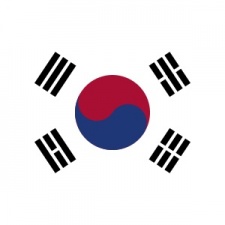Whether a blanket wage system is not paid to you depends on how much you work. If it's fixed before you get paid, no matter how much overtime you do, it's fixed to your normal salary.
The Supreme Court in South Korea used the term for the first time in 90s. According to the decision by the Supreme Court, the system is for workers whose wage is difficult to estimate, such as bus drivers and watchdogs etc.
However, it has been applied to many companies including the games industry, too. According to the report from a member of the National Political Democracy Association in 2015, 56.8% of the conglomerate's employees are subject to the blanket wage system.
Based on a report from the Korea Labor Institute on May 27th, 41.3% among 206 companies that have more than 100 employees are subjected to the system, too.
The blanket wage ystem is often exploited to avoid the payment of legal allowances and the compliance of legal hours. As the competition becomes fierce in the game market, working overtime has run rampant within the games industry.
Employer power
The system is a good for employers. They do not need to pay extra money even if employees are working more time. Therefore, employers could hire their workforce at a minimum cost.
According to a report by the Korea Labor Institute, the monthly overtime hours of workers under this wage system are 13 hours and nine minutes, and overtime hours are more than three hours longer than workers (10 hours and 43 minutes) who are under a different wage system.
Blanket wage workers do not receive salary based on actual working hours, and working hours are longer.
In the first half of 2017, the government and political parties were aware of the problem, and a move to resolve the issue was seen as a result of the presidential election in the first half of 2017. The candidates pledged to cut labour hours.
The Ministry of Employment and Labour said: "Even if the working environment of the games industry is unique, it is the most basic working conditions that have to abide by the law."
The government plans to improve working conditions and provide financial assistance for companies.
There may be additional movements from the new government, but what can be expected of the current blanket wage system is it will be divided into two categories - the improved working standards bills and the ministry's policies.
The revision of the law on working standards have been proposed at congress, but it has not been passed yet. It is still unknown whether the law will be changed or not. There has not be any movements from the games industry-related association, either.
A man from the Korean game industry said: "Labour issues including blanket wages etc will be difficult to resolve without institutional support.
"It is hard to resolve the issues by the industry alone. I wish there was an association that could speak up for industry members.”
This insight comes to us from the team at This Is Game, the leading Korean games portal and media partner of PocketGamer.biz. You'll see some of our articles on their site occasionally and discover exclusive Korean market insights here from This Is Game writers.


















